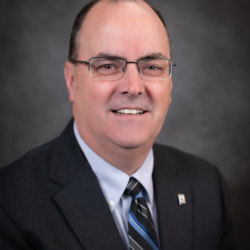Economists: We love Dad, but we spend more on Mom
We are poised to honor more than 75 million dads on Sunday as part of this year’s Father’s Day.
But U.S. consumers will not be spending as much as we did when honoring our moms last month for Mother’s Day.
Honoring Dad
Father’s Day in the United States became a national holiday in 1972, though its roots trace back to July 5, 1908, at a church in West Virginia, which sponsored the nation’s first program specifically honoring fathers, according to history.com. The church dedicated its Sunday sermon to the memory of 362 men who had died the previous December in an explosion at the Fairmont Coal Company’s mines in Monongah, West Virginia. Others say it began in 1910 in Seattle, Washington, as the West Virginia church celebration of fathers was a one-time event.
Fathers come in all ages, shapes, sizes, ethnicities, religions, and socioeconomic backgrounds. There are fathers worth billions of dollars and fathers who would be challenged to rub two dimes together. What is most important is that we honor the person who helped make us who we are today, whether that father figure be biological or not. Indeed, as the old saying goes, any male can be a father, but it takes a special person to be a dad.
Father’s Day observed globally
Most of the 75 million fathers who will be honored on Sunday will be Americans, yet millions will not. Sons and daughters will honor fathers around the United States and globally. Phone calls will be made to all 50 states and globally to places ranging from Nova Scotia, Canada, Frankfurt, Germany and Paris, France to Tokyo, Japan, Sydney, Australia and Sao Paulo, Brazil.
UPS, FedEx, U.S. Postal Service and others will make certain gifts of love are there for Dad, for those who can’t celebrate in person with Dad.
We estimate Americans will spend roughly $23 billion honoring their fathers this Father’s Day, based on 2020 Census Bureau data (up from $6.6 billion in 2009), which means Americans (on average) will spend $306.67 per father. This is a far cry from the $31.7 billion we spent to celebrate Mother’s Day (which is about $356.78 per mother).
For Father’s Day, some popular gifts include golf clubs, whiskey, ties, dinners, lawn mowers and televisions.
What will be uniquely different from the first official Father’s Day in 1972 is that consumers will use one or more of the following venues to shop for their father’s gifts, many of which did not exist back then. According to a recent National Retail Federation survey, 39% of consumers will shop for their fathers at traditional department stores; 34% will shop online; 24% will shop at discount stores; 23% will shop at specialty stores; and 2% will still use traditional catalogs.
If Father’s Day spending were a country, it would be 117th largest economy in the world
If the $23 billion we project will be spent on Father’s Day in the United States were compared to GDP, Father’s Day (if it were a country) would be the 117th largest economy in the world, slightly smaller than the Caribbean Island country of Trinidad and Tobago.
If all U.S. Father’s Day sales revenue was compiled under the name of a company called Father’s Day Incorporated, it would be the 157th largest corporation on the 2022 Fortune 500 List of the largest corporations in America by sales — slightly smaller than McDonald’s ranked 152.
Dad deserves more than a text or email
Father’s Day should be a time of celebration or healing, a time for forgiveness, and a time for growth and renewed relationships. In the many things you do over the upcoming Father’s Day weekend, be certain to give your father a hug and tell him you love him. If you cannot do that in person, call or Facetime him, as Dad deserves much more than an email or text on this very special day.
We are fortunate to live in incredible times where capitalism and technology allow us to communicate with our fathers in ways our great-grandfathers could only dream of. Use technology and make Father’s Day a daily celebration. Call your father when able, and communicate your love regularly. Zoom your dad often. And consider buying a good old-fashion card, envelope, and stamp to send a greeting to Pops while adding to the bottom line of the U.S. Postal Service.
Dr. Timothy G. Nash is director of the McNair Center for the Advancement of Free Enterprise and Entrepreneurship at Northwood University. Professor James Hop is chair of the Entrepreneurship program and a McNair Center Scholar.

